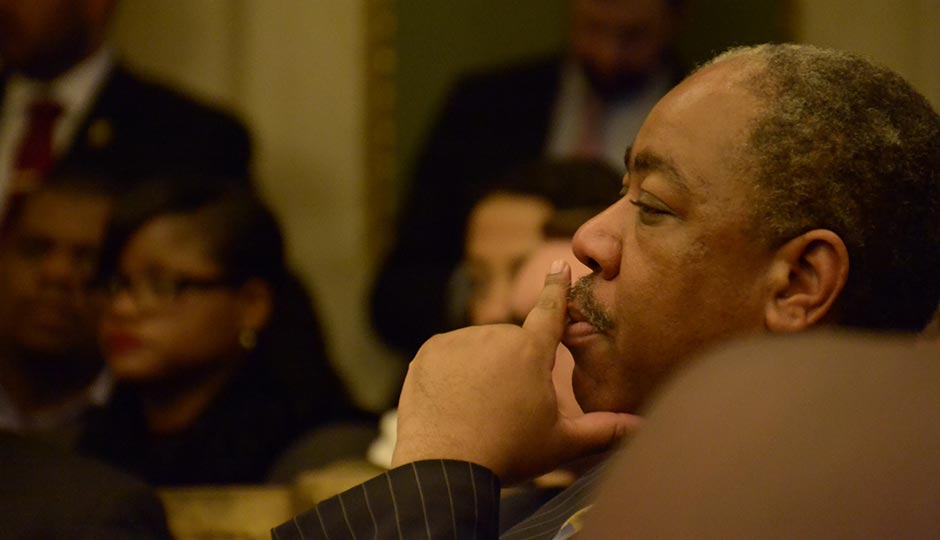Wilson Goode: “Mega-Nonprofits” Should Do More to Help Schools

Councilman W. Wilson Goode Jr. Photo | City Council Flickr
The fight over PILOTs is about to move from Amy Gutmann’s foyer all the way to City Hall.
PILOTs are “payments in lieu of taxes” — payments that non-profit organizations make to local governments, usually voluntarily, because the property they own is tax exempt. Activists at Penn raided Gutmann’s holiday party in December to press the university to make such payments — as much as $6 million — to support Philly’s beleaguered schools and have continued a persistent campaign on the topic since then.
On Thursday, Philadelphia City Council will take up a non-binding resolution sponsored by Councilman W. Wilson Goode Jr., that asks Mayor Michael Nutter to press “mega” non-profits like Penn to make the payments.
“PILOTs or voluntary contributions could generate tens of millions of dollars for the School District to address its current fiscal crisis,” the resolution says.
Goode was not immediately available on Tuesday to discuss the matter. A school district spokesman also did not return a call for comment.
The concept has support beyond radical activists. Former Mayor Ed Rendell oversaw a PILOT program during the 1990s that reportedly collected as much as $9 million a year in voluntary payments, but that effort largely died out after a 1997 state law made it easier for non-profits to qualify for tax exemptions. (The remnants of that program still reportedly generate about $300,000 a year.)
Rendell has continued to support a revived PILOT program, as has possible mayoral candidate Sam Katz, whose recent proposal to improve school funding included raising as much as $50 million annually in such payments.
But there are skeptics. Lee Huang, senior vice president and principal of Econsult Solutions, which oversaw a 2013 study of PILOTs for Penn and a dozen nonprofits, said the tool is effective mostly in cities where property taxes make up a heavy portion of the overall revenue mix for local government. That’s not the case in Philly, where City Hall relies to a greater extent on the wage tax to generate revenue.
Penn and similar institutions contribute to city revenues, Huang said, through wage taxes and the economic activity generated by the thousands of employees and students they bring to the city.
“They are contributing significantly in all the other ways.” Huang said. “The universities are major economic drivers, and the way that Philadelphia’s taxes are structured, that contributes to the general fund.”
Mark McDonald, a spokesman for Mayor Nutter, said the administration is pursuing other avenues to generate needed funding for the school district. Nutter has proposed generating $105 million for local schools through a property tax hike in Philadelphia, and supports Gov. Wolf’s proposal to increase state education funding by $1 billion.
The council meets at 10 a.m. Thursday. See the full resolution below.
Follow @JoelMMathis on Twitter.


